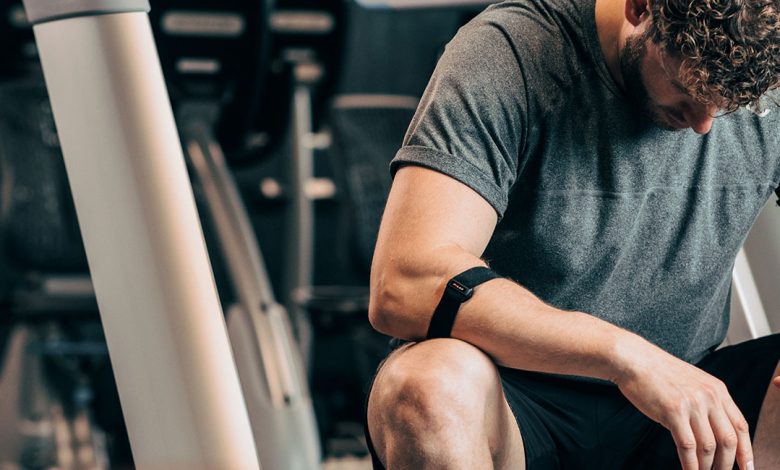The 5 Things That Happen To Your Body When You Exercise

It’s no secret that exercise is one of the best things you can do for your health. It can help you lose weight, improve your mood, and reduce your risk of various diseases. But did you know that exercise also has a number of benefits for your body beyond just physical ones? In this blog post, we will explore the five things that happen to your body when you exercise. From increased heart rate to improved cognitive function, read on to learn more about the myriad of benefits exercise can have on your overall well-being.
There are many interesting and amazing details about animals Birds that you may not have known. For example, mini cow Whether you’re interested in animals as pets, food sources, or natural history, you’ll find the information you need on About Animals.
How exercise affects your body
Exercise is beneficial for your overall health, both mentally and physically. When you exercise, your body releases endorphins, which are hormones that block pain signals from being sent to your brain. Exercise also releases serotonin, which helps improve moods and reduce anxiety. In addition, exercise can decrease the risk of developing heart disease, stroke, diabetes, and some types of cancer.
The different types of exercise
When you exercise, your body undergoes a number of changes. These changes can be positive or negative, depending on the type of exercise you do. The different types of exercise are: aerobics, weightlifting, running, cycling, swimming, and martial arts.
Aerobics is the most commonly performed type of exercise in the world. Aerobic exercises include stationary biking, treadmill walking/running, stair climbing and other aerobic dance/exercise classes. Aerobic exercises work the muscles in your heart and lungs and help to increase your breathing capacity.
Weightlifting is another popular form of exercise. Weightlifting involves lifting weights to build muscle mass and tone your body. Weightlifting can also improve your overall strength and stamina.
Running is another common type of aerobic exercise. Running consists of gradually increasing speed until you reach a level where you are able to maintain that speed for an extended period of time without losing energy. Running has many health benefits including increased calorie burn, improved heart health and stronger bones.
Cycling is a low-impact form of aerobic exercise that uses pedals instead of feet to create movement. Cycling can help you lose weight by increasing your calorie burn because it requires more energy than running or weightlifting to move forward. Cycling also has many health benefits including reduced risk for heart disease and cancer, improved joint health and better eyesight due to increased circulation
How much exercise is too much?
Excessive exercise can have serious consequences on your body, both physically and mentally. As you exercise more, your muscles produce more free radicals. Free radicals are unstable molecules that can damage cells and DNA. The harder you work out, the more free radicals your muscles produce. It’s important to remember that overtraining is a common problem with athletes and can lead to injuries. When you are working out too much, it’s best to cut back gradually or stop completely.
Your body will also start to break down muscle tissue as you exercise excessively. This process is called “catabolism” and it leads to loss of strength and size in your muscles. In addition, catabolism can cause fatigue and decreased energy levels. If you overdo it, your body will also release hormones like cortisol that can worsen mood swings, increase appetite, and lead to weight gain. So remember – if you aren’t enjoying your workouts or they aren’t providing any real benefits, then it may be time to back off a bit!
Tex9.net is a new, free online resource that offers access to information on Texas history, geography, and culture. For more information read our article
The best time of day to exercise
There is no one-size-fits-all answer to this question, as the best time of day to exercise will vary depending on your individual fitness level and schedule. However, here are five general tips for getting the most out of your workouts:
1. Workout during the morning or evening: Working out in the morning or evening allows you more time to relax before whatever you have planned for the rest of the day, while also providing you with more energy later in the day.
2. Mix up your routine: Using different types of equipment and mixing up your routine can help keep things interesting and make sure that you’re not getting bored.
3. Make sure to hydrate: Drinking plenty of water before, during and after your workout will help ensure that you’re properly fueled and stay energized throughout your workout.
4. Take breaks: If it feels like you’re working too hard, take a break! Even 10 minutes can help give your muscles a chance to relax and refuel; just be sure to resume at a slightly slower pace than before.
5. Travel with workout gear: Bringing along some exercise gear when travelling can make staying active on short trips easy – even if you don’t have access to a gym or fitness center nearby.
There are many great paying jobs in the consumer services industry. Here are some of the best paying jobs in this field: 1. Customer Service Representative: The median salary for a customer service representative is $32,000. 2. Sales Associate: The median salary for a sales associate is $36,000. 3. Retail Manager: The median salary for a retail manager is $44,000. 4. Store Manager: The median salary for a store manager is $46,000. 5. District Manager: The median salary for a district manager is $52,000.
The benefits of exercise
There are countless benefits to exercise, both physical and mental. Here are just a few:
1. Exercise can help you maintain a healthy weight.
Exercise helps to burn calories, which in turn helps to keep your weight under control. In addition, regular exercisers tend to have lower BMIs than those who don’t exercise.
2. Exercise can improve your mood and mental health.
Physical activity has been shown to improve mood and mental health in a variety of ways. For example, exercise has been linked with decreased levels of stress hormones like cortisol, which can lead to improved mental well-being. Additionally, regular exercisers have been shown to have better cognitive function than those who don’t exercise.




